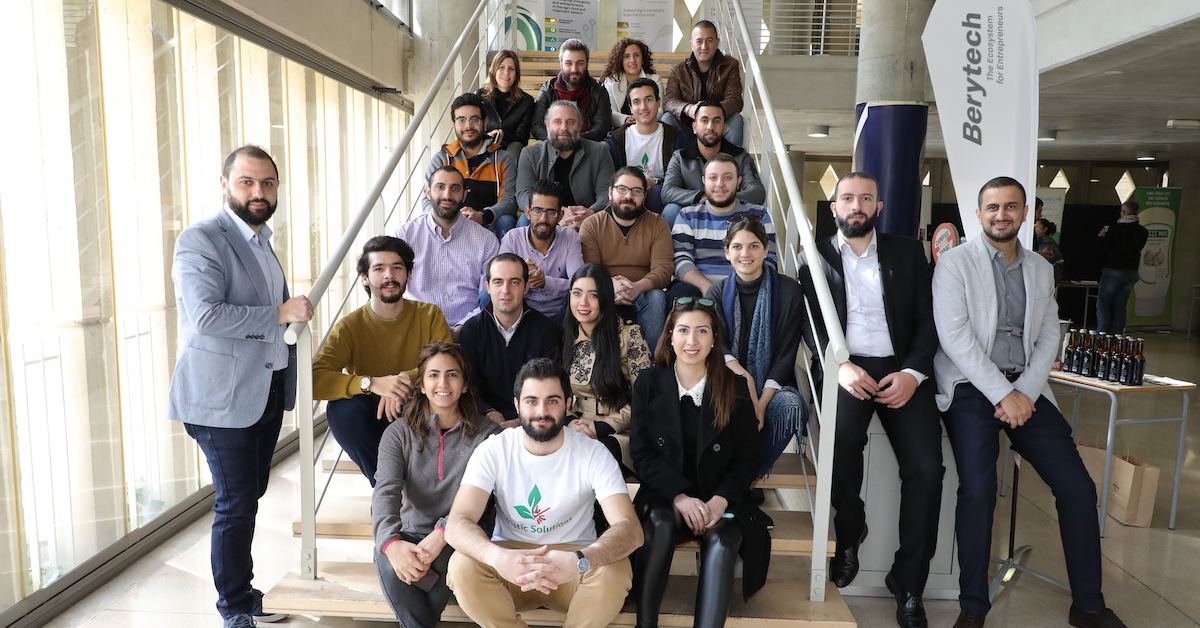The third batch enrolled in Berytech’s Agrytech Accelerator has completed the first phase of the program – defining their objectives and validating assumptions about the problem that their startup is trying to solve. They have also defined their market size, the audience, and the feasibility of their solutions. Over two months, the teams went through the validation phase of the program, receiving a grant of $2,000 each.
Phase 2 – Moving to Acceleration
At the end of the validation phase, 12 teams were shortlisted to join phase 2 of the program. The startups will use this 4-month phase to build their minimum viable product (MVP) and get traction with a $15,000 support grant. The shortlisted teams are:
Agristic Solution, a laser technology that can kill weed with high accuracy in a simple one‐time shot mechanism.
TheBeeHaus, a startup that uses technology to help beekeepers monitor, manage and optimize honey production. It also provides them with an online platform to market and promote their products.
Caesar cider, a startup working on turning fermented apple juice into hard apple cider.
Grapak, an R&D house developing a natural micro‐technology, turning grape residue and natural fibers into environmental-friendly packaging.
Ground ‐ Urban Agriculture, a startup working on developing an urban agriculture technology with low water and electrical usage.
Hive, a startup working on healthy on-the-go wholesome snacks based on bee pollen.
Karya, a mobile application allowing users to find hidden gems, restaurants, guest houses and activities in Lebanese rural areas.
Mezzmix, a startup working on developing a new way to consume garlic paste through a squeezable, bottom-up package that has a long shelf life and can be stored without refrigeration.
OrganyClean, a startup working on green and sustainable hygiene products by turning the agro waste into new, innovative, and valuable cleaning products.
Prae Cultiva, a startup working on helping farmers identify problem areas in their fields through smart infrared drone imagery.
Safer Food Link, an online portal that provides Lebanese food manufacturers with information including legislation, sector guidance and professional support.
Smart Land, a startup working on an automated irrigation system using renewable energy.
Phase 1 – two months to validate
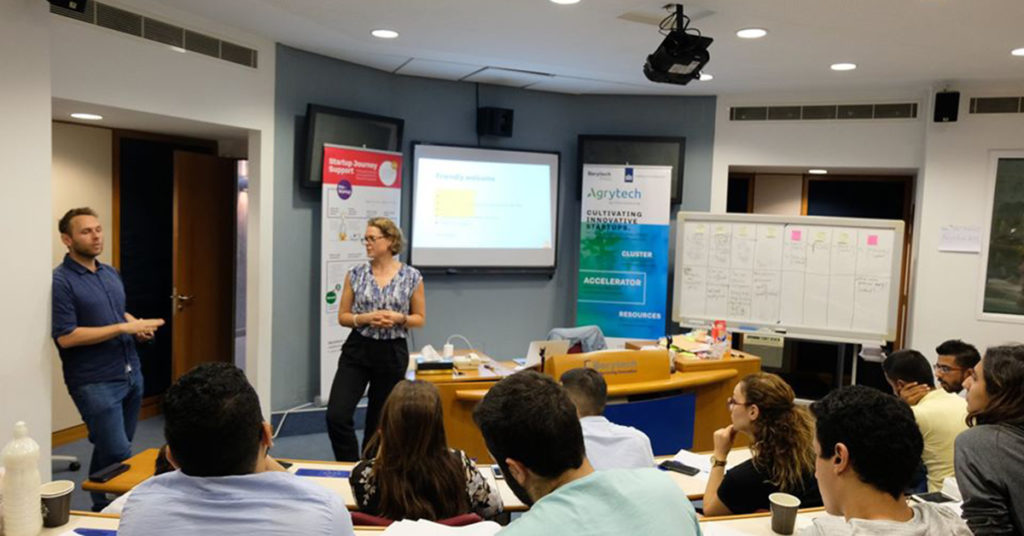
The first phase started with a Design Sprint Bootcamp that allowed the startups to transform abstract ideas into concrete prototypes. The 5-day bootcamp pushed the startups to refine their ideas, develop a basic prototype, test and receive feedback from users to further enhance their solutions.
“We’ve helped them focus on what they want to learn because in the end a Design Sprint is all about learning. They’re building prototypes to test with customers, this is where all the learning will come out. You can see that the teams are eager but also anxious to see the customers’ feedback, but it will help them sharpen their ideas and move forward,” explains Margriet Buseman – co-founder of Orange Minds and facilitator of the Design Sprint. Margriet also shared her tips in using Design Sprint principles to understanding your customer in this blog.
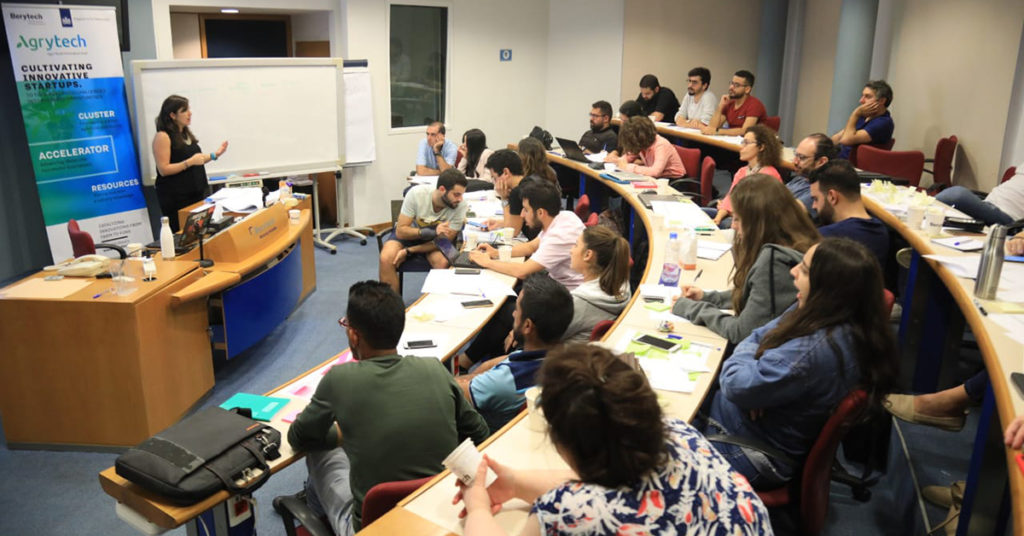
Based on the outcome of the Design Sprint Bootcamp, the startups worked on ‘Personas and Customer Journey’ with UX & Digital Strategy Consultant Lara Chikhani, to learn about the different methods of the user experience process and how human insights and hard data are used to validate decisions in design. The workshop allowed the startups to understand how to build better products faster, design their customer journey, to finally prototype and validate with the customer. Lara explains the user experience process as “a tool to get entrepreneurs to understand who they are developing their products for and how they are interacting with the product. So, understanding the process, understanding how to evaluate and how people interact with interfaces is important to get the product right and develop products that empathize with human beings.”
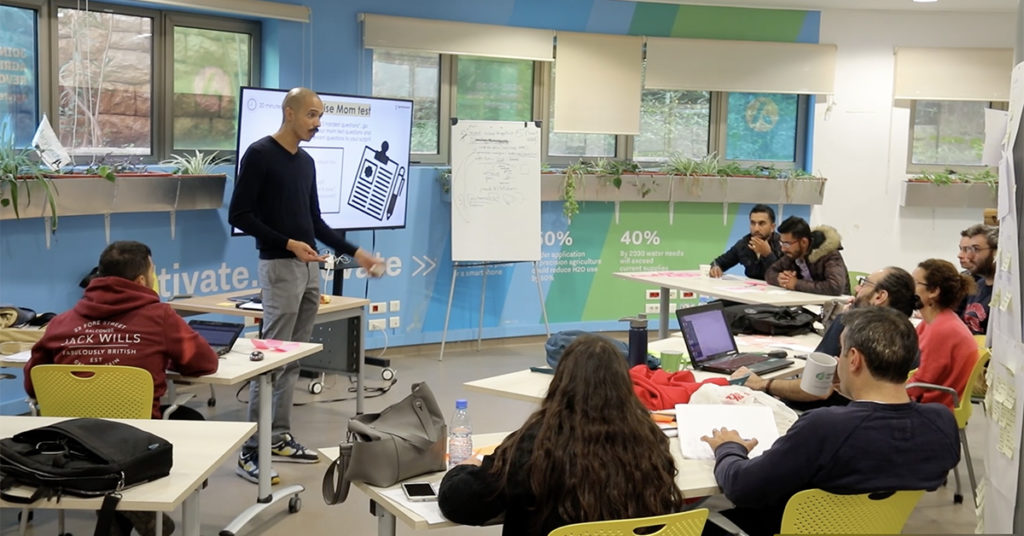
Orfeuo Lionor – Lean Startup and Corporate Innovation Consultant, worked with the startups to help them explore the process to achieve market validation and learn how to collect the data necessary for their validation. “We established what kind of assumptions they had in their business model, we tried to see how they can validate these assumptions. We call this the riskiest assumptions and it’s really at the core of what a Lean Startup Methodology is about. This will help the startups not only raise funds but feel very comfortable in their business model.”
With that, Berytech’s Finance and Business Support Advisor Joelle Atallah introduced the Business Model Canvas to allow the startups to understand and set up a successful business model. Startups with hardware solutions attended prototyping sessions at the Berytech Fab Lab to be able to start developing their MVP.
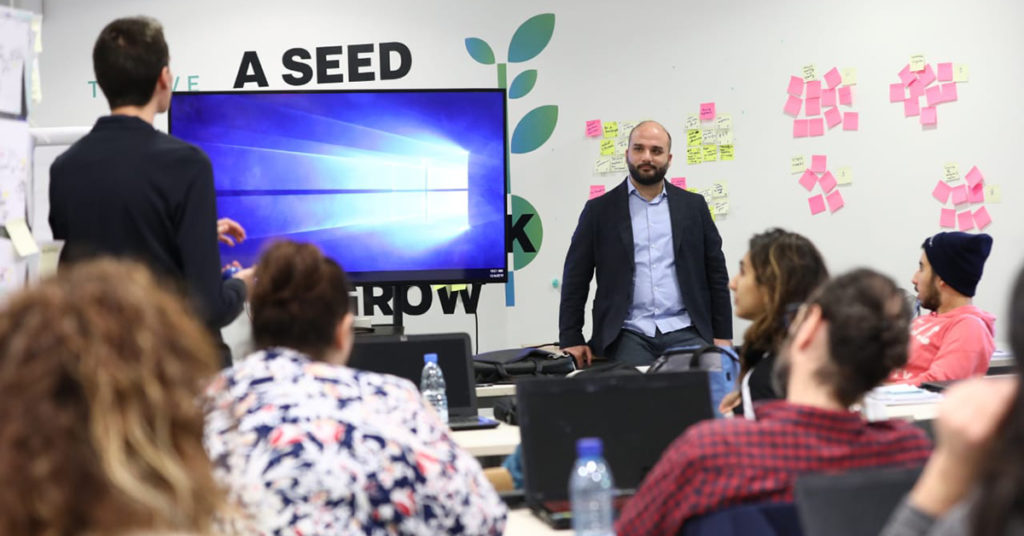
In order for the startups to be able to pitch and market their ideas to varying audiences, trainer Andre Abi Awad worked with them on an intensive pitching workshop: “My work with the entrepreneurs focused on how they can express the passion they have for what they are doing in allowing them to define their idea clearly so that anyone listening to them would be excited to support them and invest in them.”
Each of the workshops was followed by one-on-one sessions to allow the startups to confirm their deliverables and move forward. Startups in the first phase received a grant of $2,000 to use in their validation process and for prototyping. The teams were closely supported by experts and mentors from Berytech’s Agrytech team to advise them on the best practices to validate their solutions.
Exposure and Networking
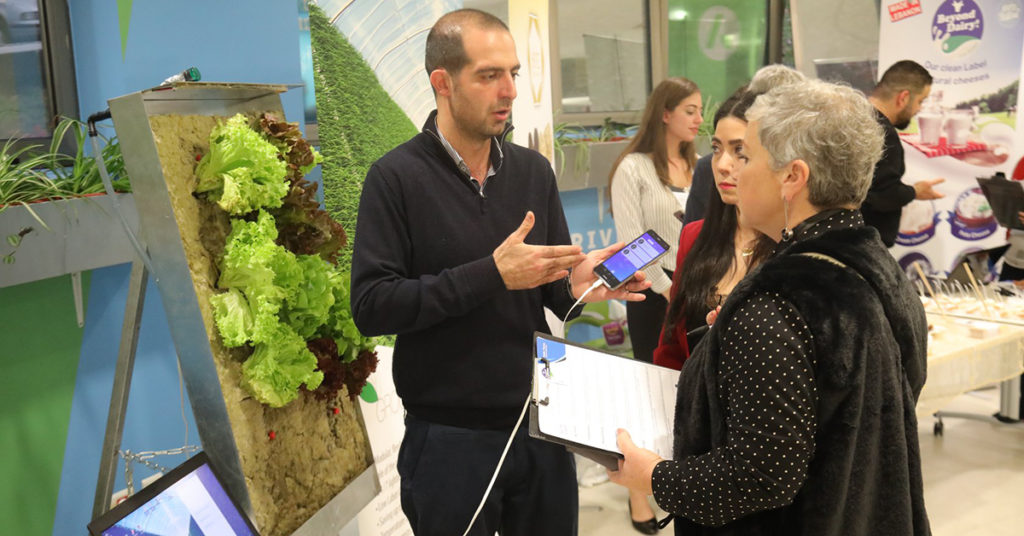
During the ‘avant-premiere’ – a yearly activity for the Accelerator, the teams were able to practice their pitches, receive feedback and validate once more their provided solutions. A number of professionals and experts were invited to the Berytech’s Agrytech Program Headquarters and given US$1 million in simulated investment money. They visited with the teams, discovered their ideas and invested in the solutions that were most attractive to them. Startups who raised the most funds won the game.
Dominique Salemeh was invited to be one of the judges in the ‘avant-premiere’ activity. A USJ professor and an expert in biochemistry and fermentation, sustainable development and environment, he explains that, “The three principle criteria that I used to evaluate and ‘invest’ during the activity are: innovation, knowledge of the competition and the relevance of the solution within the current Lebanese crisis. I encourage anyone who wants to create a solution to make sure that it solves a local challenge in the near and distant future.”
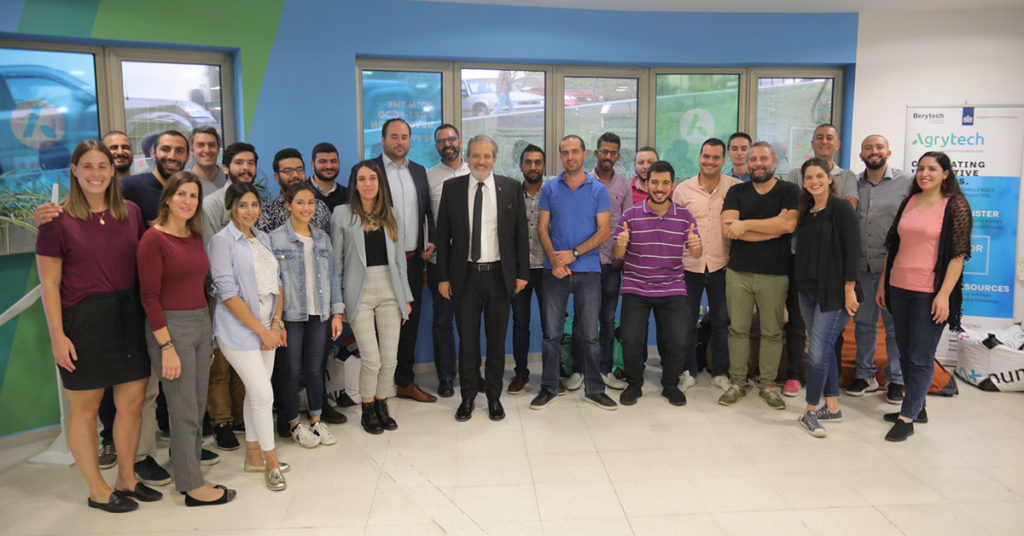
Mr. Tijmen Rooseboom, the Ambassador for Youth, Education and Work of the Kingdom of the Netherlands, visited Berytech and met with the startups enrolled in the Agrytech Program.
The gathering included a presentation of the ACT Smart Innovation Hub project and a roundtable discussion with the youth on their aspirations and wishes for growing their ventures, dreams and concerns.
Rooseboom shared: “For the Netherlands, it is very important to offer perspective to young people and the Embassy here in Beirut is focusing on education, youth employment and matching between skills people are acquiring and jobs opportunities, and I think this is what we saw here today matching the skills and the jobs.”
Learn more about the Agrytech Accelerator Program here.


